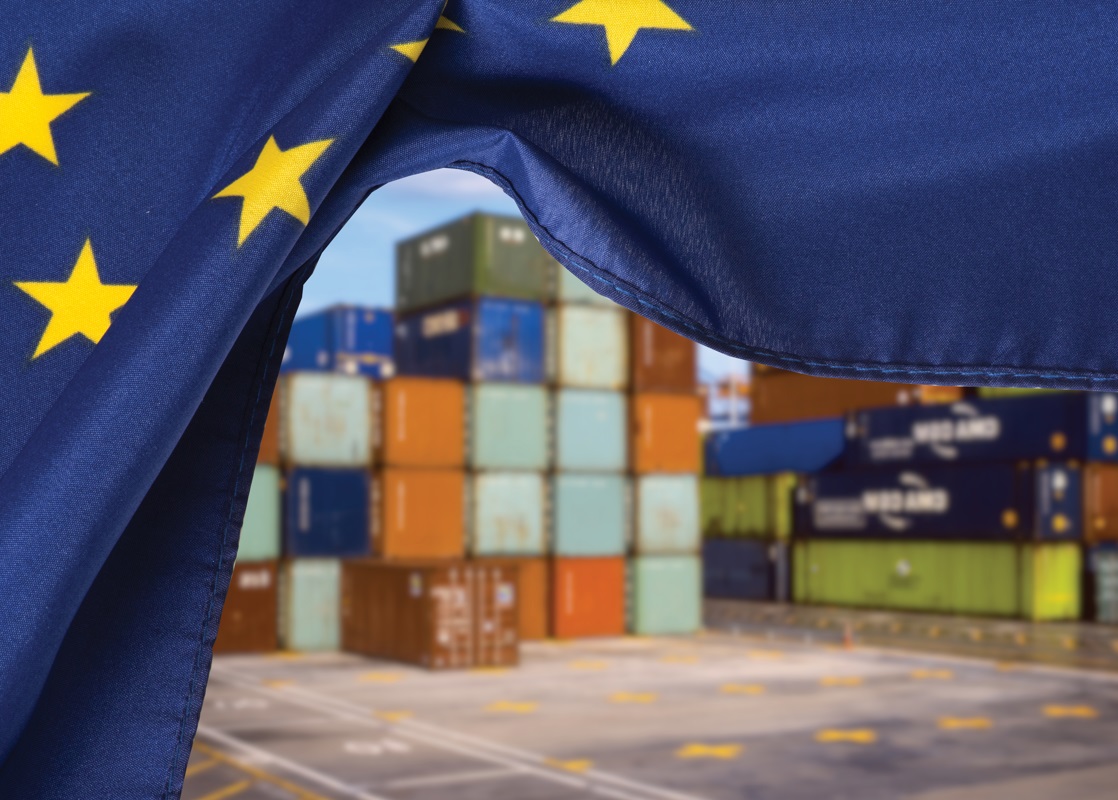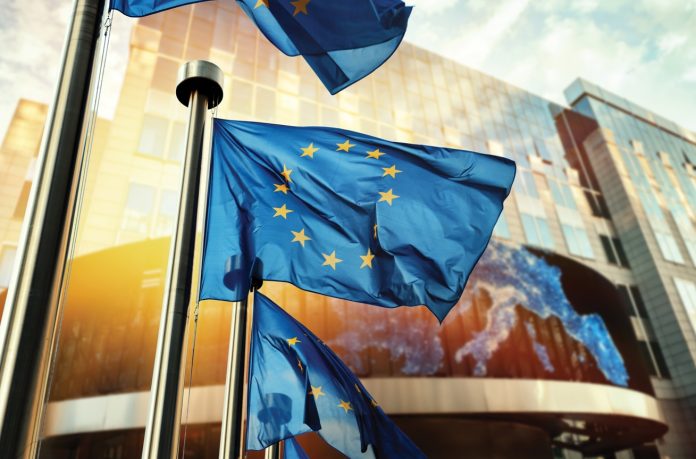The EU’s new Supply Chain Law compels companies to ensure responsible sourcing throughout their global operations. This requires mapping entire supply chains, conducting risk assessments, and collaborating with logistics partners. While compliance incurs costs and complexity, it offers benefits like improved brand reputation, stronger supplier relationships, and a more resilient supply chain. This groundbreaking legislation sets a global precedent for ethical sourcing practices.
Supply chains have been faced with an ever-increasing number of regulations and laws. This creates new complexities for supply chains and requires companies to adjust their processes to remain compliant. Supply chain leaders that focus on human rights and sustainability have seen Europe play a leading role when it comes to new regulations in the last few years.
More recently, the EU has put pen to paper with the introduction of the European Union’s Supply Chain Due Diligence Directive (CSDDD), also referred to as the “EU Supply Chain Law”, taking a bold step towards corporate accountability. This groundbreaking legislation, which is a first from a global perspective, is being finalised in 2024. This will require companies operating in the EU to start taking full responsibility for human rights and environmental abuses throughout their global supply chains.
Companies operating in the EU can expect the full impact of the CSDDD to be felt sometime between 2027 and 2029, depending on the specific compliance deadlines set by each member state. The current estimated timeline is to have an agreement by the European Parliament and Council of Ministers by late 2024. In February, there was a hiccup in getting to this agreement, as European Union countries postponed the decision on the proposed law in February, Germany and Italy having indicated they would abstain1. Then, on 15 March, the European Union countries did agree to the EU Supply Chain Law, with 17 ambassadors from the 27 EU countries backing the law, and no votes against2. The March approval of the draft legislation comes after the bloc failed twice in February to get it approved. Among the countries that objected to the original text were Germany and Italy, which feared it would hit their industries harder, due to their high numbers of small and medium businesses. There were also concerns that companies would remove themselves from the EU due to bureaucracy and legal risks3.
Now that the EU Supply Chain Law has been approved, the EU member states will have 2 years to transpose the directive into their national laws. Companies will then have a grace period (likely 1-2 years) to become compliant with the new regulations. But companies should not wait to act, as this law will impact the business in several ways that require sufficient preparation time.
So, what are some of the key impacts of this transformative law and its potential impact on businesses?
The directive applies to companies operating within the EU, regardless of their nationality. Originally, the CSDDD impacted companies with 500 employees and a turnover of €150 million. Those numbers have been raised to 1,000 employees and a turnover of €450 million. Large non-EU companies exceeding the same size threshold with activities within the EU market will also be subject to the law, which mandates them to undertake due diligence measures to identify, prevent, mitigate, and account for potential adverse impacts on human rights and the environment within their supply chains. This includes risks in their own operations, those of their direct suppliers and, potentially, even indirect suppliers. It further requires companies to take steps to prevent, mitigate, or address identified risks. This might involve implementing measures like supplier codes of conduct, due diligence audits, and collaboration with stakeholders. Lastly, companies are required to report publicly on their due diligence efforts and the measures taken to address sustainability risks. This will increase transparency and accountability.
The law applies to different aspects. First, human rights, which refers to the fundamental rights such as freedom of association, non-discrimination, and prohibition of child labour and forced labour. Next, the environment, affecting issues like biodiversity loss, pollution, and climate change. And finally, companies are required to publicly report on their due diligence measures and establish accessible grievance mechanisms for stakeholders to report potential abuses. Failure to comply with the law can result in hefty fines and exclusion from public procurement tenders. Additionally, civil liability lawsuits by stakeholders impacted by human rights or environmental abuses are possible.
The law represents a significant shift in corporate responsibility, requiring companies to invest in robust due diligence processes. It is no longer enough to be talking about certain actions; companies will need have the due diligence and prove they are taking action. This will often lead to increased costs, as implementing effective due diligence across complex supply chains will require resources and expertise. While the law presents challenges, it also offers opportunities for businesses, such as enhanced brand reputation and improved supplier relationships. The law also promotes fair competition by holding all companies accountable for ethical sourcing practices.
The EU Supply Chain Law (SCSDDD) will compel companies to take a more proactive approach to ensure responsible sourcing throughout their supply chains. Companies can create risk mitigation strategies and operational adjustments for their logistics stakeholders following this legislation. Supply chain companies should collaborate with logistics partners to map their entire supply chain, including all tiers (direct and, potentially, indirect suppliers). This transparency is crucial for identifying potential risks related to human rights and environmental practices. They should further conduct risk assessments with logistics partners to identify potential environmental and human rights violations within their operations. For that purpose, they can utilise tools and methodologies like the OECD Due Diligence Guidance for Responsible Business Conduct.

Collaboration is key when it comes to mitigating risk. Supply chain companies need to collaborate with logistics providers to understand their existing sustainability practices. Engaging in open communication and encouraging them to implement responsible sourcing policies is a way to achieve collaboration. Another form of collaboration is through offering training programmes for logistics partners on responsible sourcing practices and compliance with the EU Supply Chain Law. Supply chain companies should consider partnering with their logistics providers to conduct joint audits of critical suppliers, allowing for a more comprehensive risk assessment.
Further mitigation can be achieved through contractual measures and monitoring. Supply chain companies can integrate clauses into their contracts with logistics providers that require them to adhere to the company’s sustainability standards and the EU Supply Chain Law. A robust monitoring system should be put in place to track the performance of the logistics partners and ensure they are meeting their obligations.
Just as in other parts of the supply chain, technology plays a major role in supporting the changes necessary to comply with the EU Supply Chain Law. Supply chain companies should implement traceability solutions to enhance supply chain visibility and track the origin of materials and products more effectively. Data analytics tools can be used to monitor and analyse vast amounts of data related to logistics operations. This can help identify potential risks and inefficiencies within the supply chain.
The law will drive several benefits for supply chain companies. It will improve supply chain visibility, as companies will need to map their supply chains comprehensively and improve communication with suppliers. By strengthening risk management, potential abuses can be avoided and mitigated much earlier, reducing reputational damage and legal risks. Supply chain visibility and risk management can be increased through innovation and collaboration. New technologies and collaborative efforts with industry peers can streamline due diligence processes. Using visibility data from platforms can increase the visibility and transparency of what is happening in the supply chain. The data can also be used to provide accurate reporting, allowing companies to be compliant with the law. The law will also reduce reputational risks by proactively addressing sustainability issues, which will help companies minimise the risk of negative publicity and consumer backlash. The law can further enhance brand image. Consumers have become increasingly concerned about ethical sourcing. Demonstrating responsible supply chain practices can strengthen brand image and customer loyalty, positively impacting revenues. And finally, the EU Supply Chain Law can improve supply chain resilience. Identifying and mitigating risks can lead to a more robust and sustainable supply chain, less vulnerable to disruptions.
Besides the benefits, the EU Supply Chain Law also comes with possible challenges for companies. Implementing due diligence processes and reporting requirements will incur additional costs. Mapping complex supply chains and identifying potential risks can be challenging, especially for companies with a global reach, possibly increasing supply chain complexity. The final challenge is the enforcement uncertainty, as the exact enforcement mechanisms of the CSDDD are still being finalised.
The EU Supply Chain Law is a landmark legislation with far-reaching implications for businesses operating in the EU. There are ongoing efforts to establish international frameworks for corporate due diligence. The UN Guiding Principles on Business and Human Rights and the OECD Guidelines for Multinational Enterprises provide non-binding frameworks that some countries might leverage when developing their own regulations. Some regions might have different priorities regarding which aspects of supply chain impacts to focus on, such as human rights versus environmental issues.
The EU Supply Chain Law is a significant development with the potential to reshape how companies manage their global supply chains. And while navigating the law’s complexities might seem daunting, embracing its requirements can lead to a more sustainable and responsible future for both businesses and society. While challenges exist, proactive companies can leverage this opportunity to improve their sustainability practices, strengthen their brand image, and ensure long-term resilience in the face of evolving global regulations.
Nothing contained herein constitutes an offer to sell or solicits an offer to purchase any of the products and services described herein. Any such purchase or sale shall be made only upon execution of a definitive agreement, which shall be the sole and exclusive embodiment of the terms and conditions of sale as well as the representations and warranties, if any, related thereto.
About the Author
 Bart De Muynck is an industry thought leader with over 30 years of supply chain and logistics experience. Bart has worked for major multinational companies as well as several tech companies. Bart spent 8 years as a VP of Research at Gartner and most recently served as the Chief Industry Officer at project44. Bart is a sought-after speaker who is currently advising multiple companies and industry organisations in logistics.
Bart De Muynck is an industry thought leader with over 30 years of supply chain and logistics experience. Bart has worked for major multinational companies as well as several tech companies. Bart spent 8 years as a VP of Research at Gartner and most recently served as the Chief Industry Officer at project44. Bart is a sought-after speaker who is currently advising multiple companies and industry organisations in logistics.
References



































